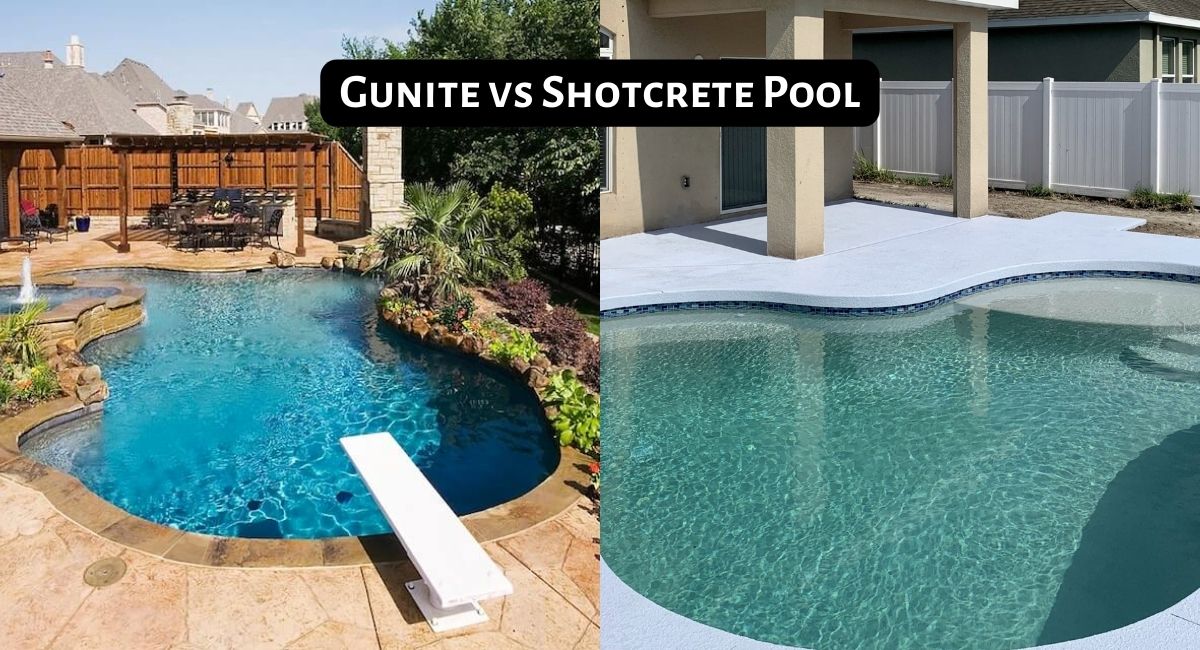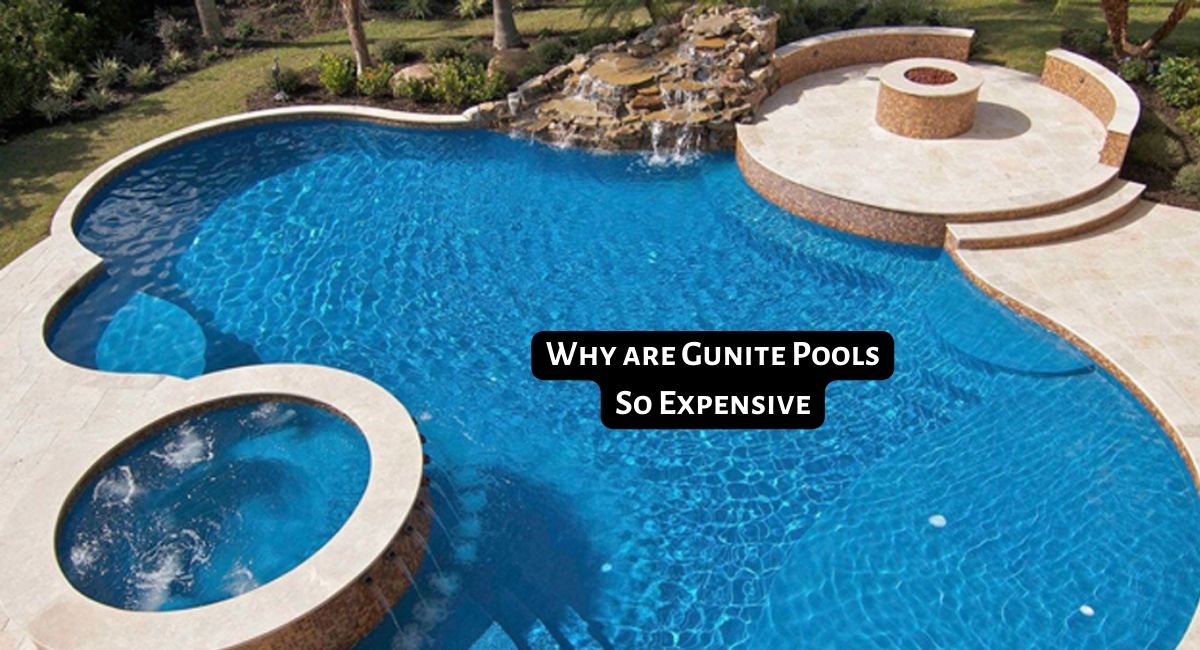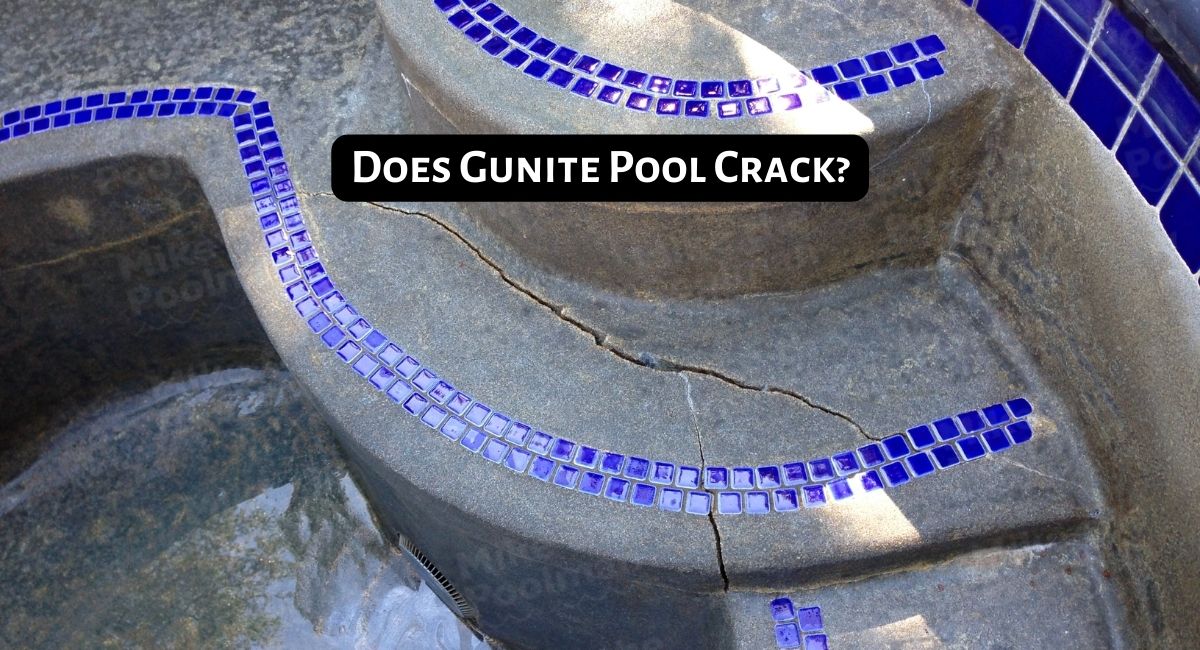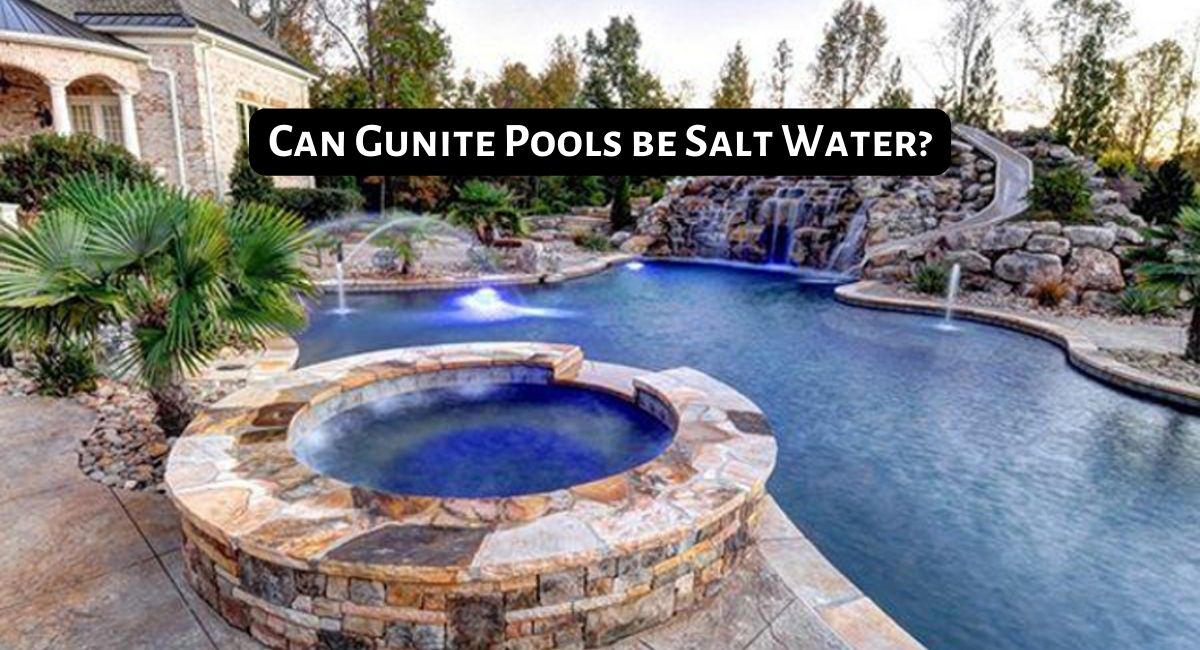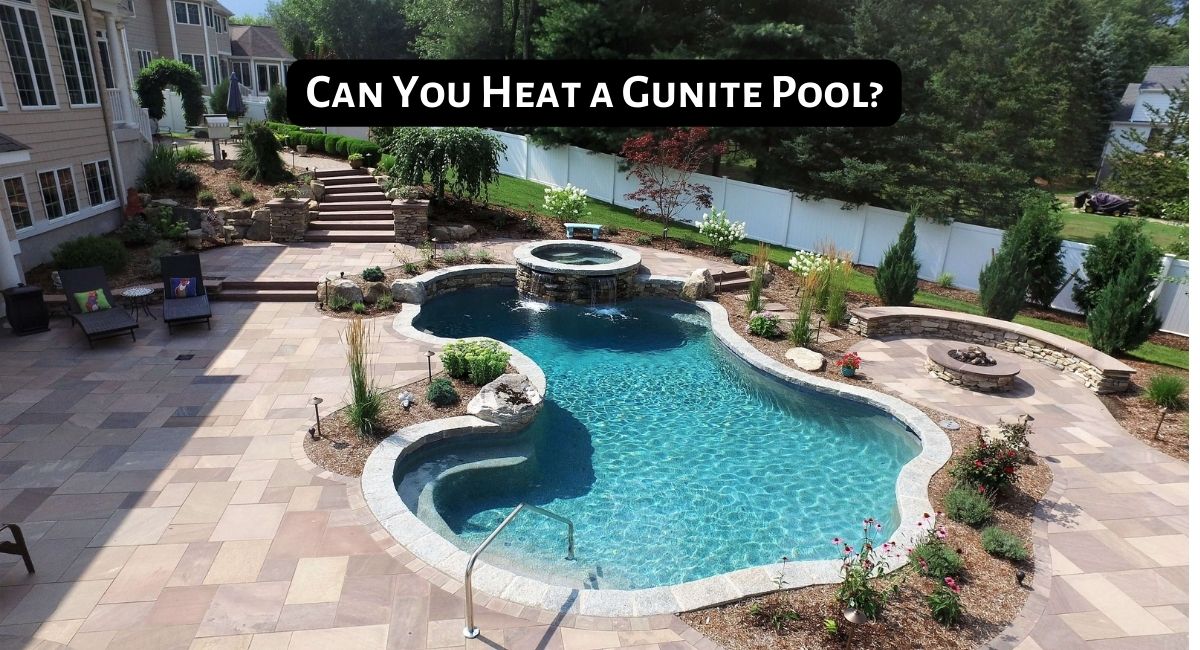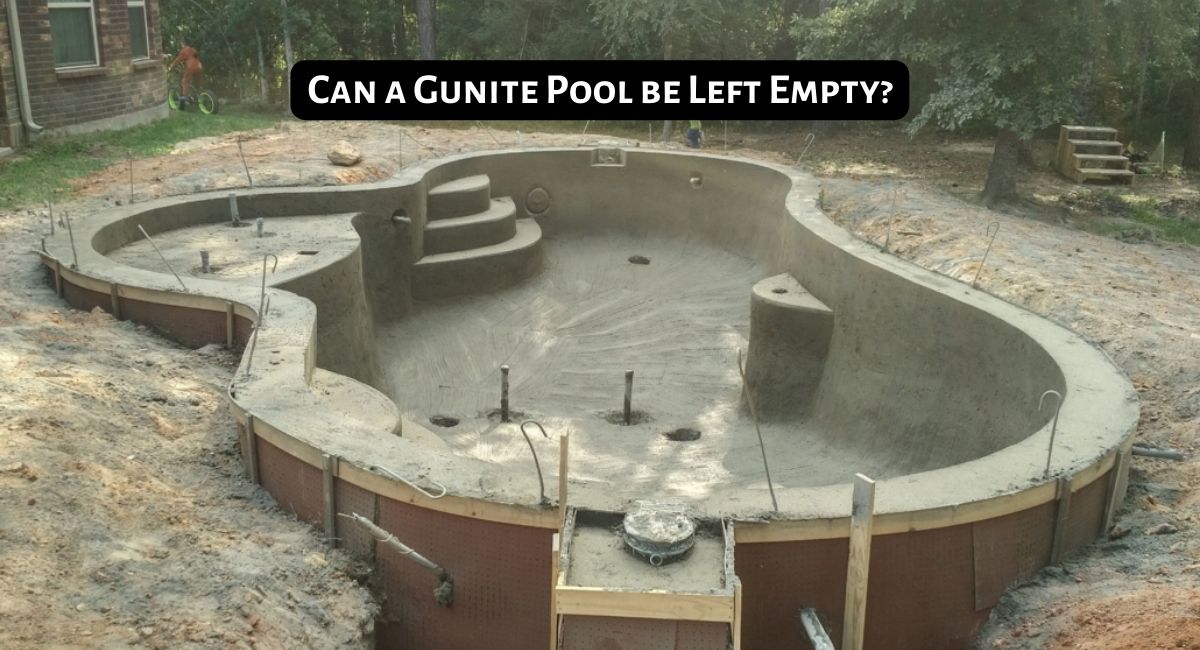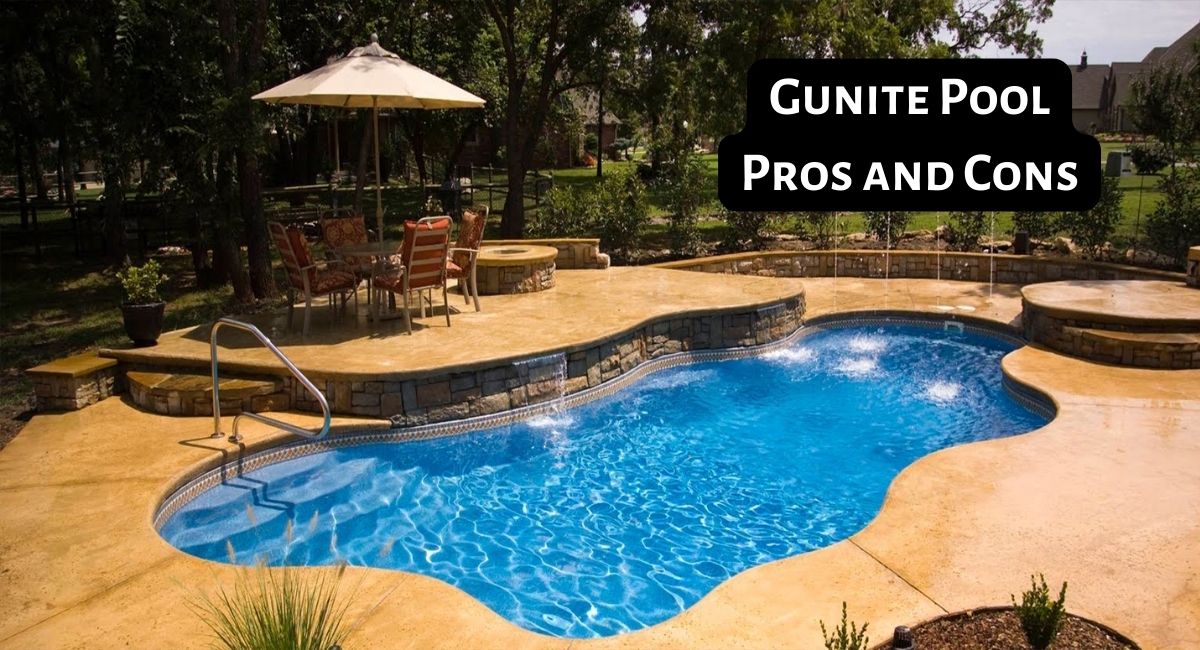When it comes to choosing a pool for your backyard, there are many factors to consider. One of the most important is deciding on a material—gunite or shotcrete? Both materials offer distinct advantages and disadvantages, so it’s important to know the differences between them before making a decision. In this blog post, we’ll compare the two materials, Gunite vs Shotcrete Pool, to help you make an informed decision about which material best suits your needs.
We’ll cover topics such as cost, installation time, durability, and maintenance requirements. By the end of this article, you should have a better understanding of these two materials so that you can make an informed choice when selecting a pool for your backyard. Let’s get started!
TL:DR
Gunite and shotcrete pools are both popular choices for residential and commercial swimming pool construction due to their durability, low maintenance, and customization options. Both systems use a combination of sand, cement, water, and air to create a strong concrete mixture that is then applied directly onto the surface of the pool. The main difference between gunite and shotcrete pools lies in how the concrete mixture is applied: Gunite uses compressed air to spray the mix into place while Shotcrete applies it via high-pressure water hose.
Gunite vs Shotcrete Pool
Are you considering installing a swimming pool in your backyard? If so, you may have heard of the two common construction techniques: Gunite and Shotcrete. Both of these techniques use concrete and other materials to construct pools, but there are some key differences between them. In this blog post, we will explore the differences between Gunite vs Shotcrete Pool construction to help you decide which technique is right for your project.
We’ll look at factors such as cost, installation time, maintenance requirements, and more! Keep reading to learn more about Gunite vs Shotcrete pool construction.
What is a Gunite Pool?
Gunite, also commonly referred to as “spraycrete” or “dry-mix gunite”, is a form of concrete that’s sprayed onto the surface of a pool in order to create its shape. Gunite pools are created by mixing a dry material like sand and cement with water and pressurizing the mixture so it can be applied through a hose. The pressure helps ensure the mixture adheres to the walls of the pool, forming an extremely durable shell.
Advantages and Disadvantages of Gunite Pool
| Advantages | Disadvantages |
| Durable and long lasting: Gunite is a very durable material, so once installed it will withstand daily wear and tear for many years. | Long installation time: The process to install a gunite pool takes longer than shotcrete due to the curing period required. This can add to the overall cost of the project. |
| Versatile: The material can be formed into any shape or size imaginable, making it great for creating unique designs for your pool. | Susceptible to cracking: Gunite is highly susceptible to cracking under pressure and needs regular maintenance to ensure it stays in good condition. |
| Cost effective: Gunite is the more affordable option when compared to shotcrete, so it’s a good choice if you are on a tight budget. |
Applications of Gunite
- Gunite pools are often used to build large, free-form shaped pools that require extra strength.
- These types of pools usually have an interior finish consisting of a smooth white plaster surface or exposed aggregate finishes that are also available in multiple colors.
- Gunite is ideal for areas with clay soil as it is not prone to erosion, cracking or settling.
What is a Shotcrete Pool?
Shotcrete, also called wet mix or pneumatically applied concrete, is similar to gunite but adds additional ingredients like bonding agents and accelerators during mixing. These additives facilitate better adhesion when applying shotcrete to surfaces, making it the preferred choice for pools with demanding curves and contours. Because the mixture is wet when applied, it’s also easier to achieve a smoother finish on shotcrete pools than gunite pools.
Advantages and Disadvantages of Shotcrete Pool
| Advantages | Disadvantages |
| Quick installation process: The shotcrete installation process is much faster than gunite, taking a fraction of the time with minimal curing time required. This makes it an attractive option for those who want their pool installed quickly. | More expensive: The cost of shotcrete is typically higher than gunite, so it’s not always the most cost effective option. |
| More durable: Shotcrete is denser and more resistant to cracking and other damage, making it a better choice for long term durability. | Limited design options: While shotcrete can be used to create unique designs and shapes, its flexibility is more limited when compared to gunite. |
| Customizable designs: Since shotcrete can be applied in layers, this allows for more precise customization during the installation process. |
Applications of Shotcrete
- Shotcrete is perfect for swimming pool projects with narrow profiles and complicated shapes because the material can be sprayed into tight spaces without compromising on durability and strength.
- It has good adhesion properties, so it’s great for DIYers who want to add their own decorative finishings such as tile work or mosaics.
- Shotcrete is a popular choice for outdoor pools as it provides superior resistance to rain, wind and other weather conditions.
Major Differences Between Gunite and Shotcrete
| Factor | Gunite Pool | Shotcrete Pool |
| Material | Gunite pools are constructed using a dry-mix of sand and cement | Shotcrete pools are made with a wet concrete mixture that is sprayed on as it is mixed |
| Installation Process | Gunite pools require the use of special machinery to ensure the sand and cement mixture is applied correctly | Shotcrete pools can be installed more quickly due to their wet concrete mixture. |
| Durability | Gunite pools are more resilient to water damage due to their dry-mix composition. | Less resilient to water damage |
| Price | Gunite pools tend to be more expensive | Shotcrete pools are expensive due to the additional machinery required for installation |
| Repairability | repairing a Gunite pool tends to be easier and less expensive | A little more expensive to repair |
Which is Better – Gunite vs Shotcrete?
The answer depends largely on your budget and the type of pool you want. Gunite is generally more affordable than shotcrete but may require additional smoothing after installation if you want an extra-smooth surface. Shotcrete is slightly more expensive but offers better adhesion and a smoother finish that requires minimal additional work after installation.
As an overall winner, Gunite takes the lead since it is much longer lasting.
Conclusion
Gunite and Shotcrete pools are two great pool construction options that have their own advantages. Both offer a variety of design styles and rigidity, but the best option for you depends on your budget, preferences, and time frame. Gunite is a more durable choice with higher heat retention but is more expensive than Shotcrete. On the other hand, Shotcrete offers cheaper installation costs but has lower heat retention properties.
Ultimately both types of pools can last for decades if properly maintained so it’s important to do your research and make an educated decision before choosing either one!
Frequently Asked Questions (FAQs)
Is shotcrete better than gunite?
Shotcrete and gunite are similar, but there is no clear answer as to which one is better. Both materials have advantages and disadvantages that should be considered when deciding which material to use for a pool. Shotcrete offers a smoother finish than gunite but requires more specialized skills to install. Gunite tends to be less expensive and faster to install than shotcrete but can require more maintenance over time due to its porosity. Ultimately, the decision depends on budget, skill level of the installer, and desired look and feel of the finished product.
Is gunite and shotcrete the same?
No, gunite and shotcrete are not the same. Gunite is a dry-mix concrete that is applied by blowing it through a hose onto the surface, where it hardens quickly. Shotcrete is a wet mix of concrete that is sprayed on with high pressure and mixed as it is being applied. While both processes provide great strength and durability in pool construction, they do have different advantages and disadvantages depending on the project’s needs.
What is a disadvantage to shotcrete?
A disadvantage of shotcrete is that it requires a skilled and experienced applicator, as any mistakes can be costly to fix. Additionally, the application process of shotcrete is more labor-intensive than Gunite and other pool surfaces, resulting in higher installation costs. The curing time for shotcrete also tends to take longer than Gunite, which could delay the completion of your project. Lastly, over-saturation with water or deicing salts may cause the surface to deteriorate faster than other pool surfaces due to its inherent porosity. However, with proper maintenance, this can be minimized.
Is shotcrete stronger than concrete?
Shotcrete is typically stronger than concrete due to the fact that it is sprayed at high pressure. This process helps to increase the density and reduce the porosity of the material, which leads to a stronger finished product. Furthermore, shotcrete can be applied in a thin layer over existing surfaces for added strength and durability. Overall, shotcrete often provides more structural integrity than concrete because of its unique application technique.
